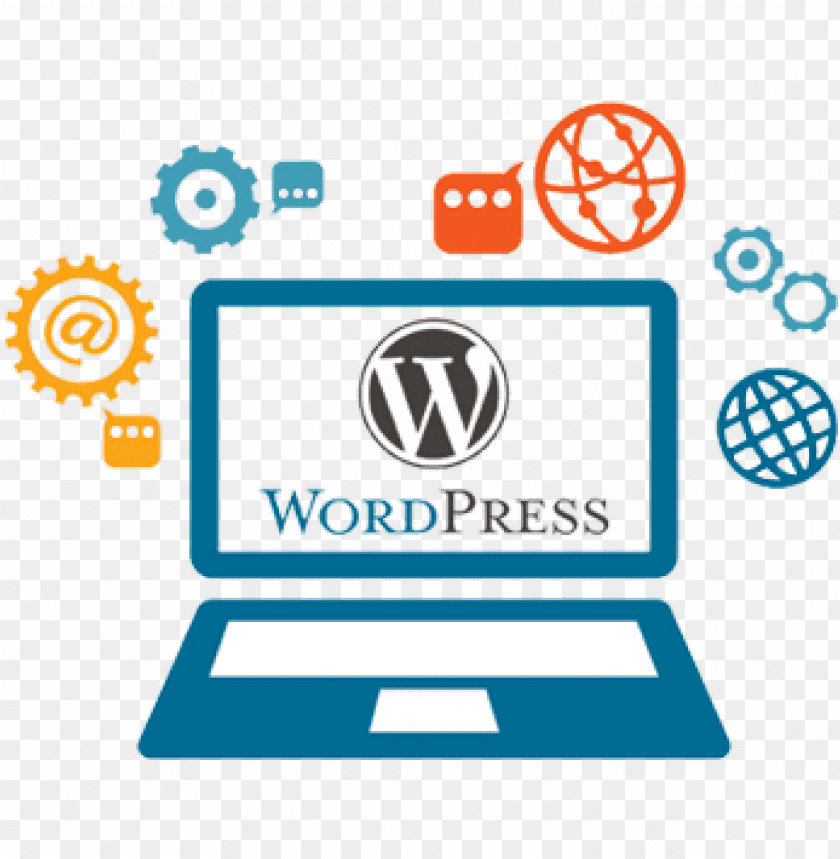I. Introduction
A. Definition of WordPress: WordPress is a free and open-source content management system (CMS) based on PHP and MySQL. It is the most popular website platform in the world, powering over 40% of all websites on the internet.
B. Brief history of WordPress: WordPress was first released in 2003 and has since evolved into a comprehensive and user-friendly platform for building and managing websites. Its popularity has grown rapidly, due in part to its user-friendly interface, extensive library of plugins and themes, and strong community support.
C. Overview of the popularity of WordPress: The popularity of WordPress can be attributed to its ease of use, flexible design, and low cost. It is a cost-effective solution for individuals, small businesses, and large enterprises, making it a popular choice for website development and management.

II. User-Friendly Interface A. Easy installation and setup: WordPress is easy to install and set up, even for those with limited technical knowledge. The platform offers step-by-step instructions and a user-friendly dashboard, making it simple to create a professional-looking website in just a few clicks. B. Intuitive and customizable dashboards: The WordPress dashboard is intuitive and customizable, allowing users to quickly access the tools and features they need to manage their website. This makes it easy for users to update content, change themes, and add new plugins, without the need for technical expertise. C. WYSIWYG (What You See Is What You Get) editor: The WordPress WYSIWYG editor is easy to use and provides a real-time preview of the content being added to the website. This allows users to see exactly how their content will look on the website, without the need for extensive coding skills.
III. Responsive Design A. Mobile-friendly themes and templates: WordPress offers a wide range of mobile-friendly themes and templates that are designed to be responsive, providing an optimal viewing experience on all devices. This ensures that your website will look great on desktop computers, laptops, tablets, and smartphones. B. Cross-device compatibility: WordPress is cross-device compatible, allowing users to manage their website from any device, at any time. This makes it easy to keep your website updated and running smoothly, even when you’re on the go. C. SEO optimization: WordPress is optimized for search engine optimization (SEO), making it easier for your website to rank higher in search engine results. This can result in increased visibility and traffic to your website, helping to drive more sales and engagement.
IV. Extensive Plugin Library A. Wide range of free and paid plugins available: WordPress has a vast library of plugins that can be used to add new features and functionality to your website. This includes everything from social media integration and email marketing tools to e-commerce platforms and security features. B. Easy integration with other platforms and tools: WordPress is easy to integrate with other platforms and tools, including Google Analytics, social media networks, and e-commerce platforms. This makes it easy to connect your website to the tools you need to grow your business. C. Customization and optimization options: The extensive library of plugins and themes available for WordPress make it easy to customize and optimize your website. This allows you to tailor your website to meet the specific needs of your business, while ensuring that it remains fast and responsive.
V. Strong Community Support A. Large and active user community: WordPress has a large and active user community, making it easy to find answers to questions and get support when needed. This includes a vast knowledge base and online resources, as well as regular updates and bug fixes from the WordPress development team. B. Regular updates and bug fixes: WordPress is constantly being updated and improved by the development team, ensuring that it remains a secure and reliable platform for building and managing websites. This also ensures that the platform is always up-to-date with the latest web development trends and technologies.
C. Vast knowledge base and online resources: The WordPress user community is vast, with a wealth of knowledge and online resources available to help users get the most out of the platform. This includes forums, blogs, and online tutorials, providing users with a wealth of information and support when needed.
VI. Security Features A. Regular security updates and patches: WordPress is regularly updated with security patches and updates to protect against vulnerabilities and security threats. This helps to keep your website secure and protected from potential attacks. B. Wide range of security plugins available: WordPress has a wide range of security plugins available, offering advanced protection against cyber threats and other security risks. This includes plugins for two-factor authentication, malware scanning, and backup management, providing an added layer of security for your website. C. User management and control options: WordPress offers user management and control options, allowing website administrators to set permissions and access levels for different users. This helps to ensure that sensitive information and data are protected, while also providing users with the tools they need to effectively manage their website.
VII. Cost-Effective Solution A. Free and open-source platform: WordPress is a free and open-source platform, making it a cost-effective solution for website development and management. This means that users can access the platform and its extensive library of plugins and themes without incurring any upfront costs. B. Affordable hosting and domain options: Hosting and domain costs for WordPress websites are affordable, making it an accessible option for businesses of all sizes. This allows users to focus on building and growing their website, rather than incurring extensive costs for hosting and domain management. C. Minimal ongoing costs: The ongoing costs associated with WordPress are minimal, with the majority of expenses related to hosting and domain management. This makes it a cost-effective solution for businesses that need to maintain a strong online presence, without breaking the bank.
VIII. Conclusion A. Recap of the advantages of WordPress: WordPress is a popular and user-friendly platform for building and managing websites. It offers a range of advantages, including a user-friendly interface, responsive design, extensive plugin library, strong community support, security features, and cost-effective solution. B. Final thoughts on the future of WordPress: With its popularity and continued growth, it is clear that WordPress will continue to play a major role in the future of website development and management. Its user-friendly interface, responsive design, and strong community support make it a platform that is here to stay. C. Recommendations for choosing WordPress as a website platform: If you’re looking to build a new website, or update an existing one, WordPress is a highly recommended platform. Its user-friendly interface, responsive design, and cost-effective solution make it a great choice for businesses of all sizes and industries.


